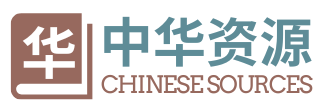How do Chinese people celebrate the double ninth festival?
Origin of the double ninth festival
What is the double ninth festival?
There is another traditional festival of China, its official name is Chung Yeung Festival (重陽節) (重阳节) (also spelling Chong Yang Festival). Chong Yang festival falls on the ninth day of the ninth lunar month. The ancient Chinese thought the number “nine”had a lucky and vigorous meaning. So it came from the coincidence that double nine meaning “double lucky”.
What most Chinese people do on the double ninth festival?
Mountain Climbing -Cakes – Chrysanthemums -Senior Day
One of the traditional activities is mountain climbing. On such an autumn day, when the sky is high and the air is brisk, people stand on top of a mountain, feasting their eyes on the surrounding beauty of nature.
Another custom of the festival is eating double ninth cakes. Because in Chinese “cake” 糕 “gāo” and “high” 高 are homophones, people would eat cakes to symbolize scaling heights. As every Chinese traditional festival has its corresponding food, Most people drink chrysanthemum tea.
The festival is also an occasion for people to appreciate blossoming chrysanthemums. In the mind of Chinese, chrysanthemum blooming in a gentle autumn breeze is a token of noble qualities. As a result, the chrysanthemum has often been used to describe men of integrity and led to the creation of numerous related poems. For example, Tao Yuanming of the Eastern Jin Dynasty wrote: “I plunk chrysanthemums under the eastern hedge, then gaze long at the distant southern hills”. As chrysanthemum is also a medical herb for prevention of some diseases, drinking the wine brewed with this flower has become the vogue of this day.
The double ninth festival is also an opportunity to care for and appreciate the elderly. Because in 1966, Taiwan set the double ninth day as “Senior Citizens’ Day”. In 1989, the double ninth day of the Chinese lunar month was designated as the day for the Aged, that was how it came for the custom of showing love and respect to the elder. In some other places of mainland China, some Chinese also visit the graves of their ancestors to pay their respects. In Hong Kong and Macao, whole extended families head to ancestral graves to clean them and repaint inscriptions, and to lay out food offerings and Chongyang rice cakes. Incense sticks are burned. Cemeteries get crowded.
Poem – the Double Ninth Festival
Double Ninth, Remembering my Shandong Brothers
Poem. about the holiday,
Double Ninth, Remembering my Shandong Brothers
(九月九日憶山東兄弟), by the Tang Dynasty poet Wang Wei:
獨在異鄉為異客,
dú zài yì xiāng wéi yì kè
每逢佳節倍思親。
měi féng jiā jié bèi sī qīn
遙知兄弟登高處,
yáo zhī xiōng dì dēng gāo chù
遍插茱萸少一人。
biàn chā zhū yú shǎo yì rén
Being Alone alien in a foreign land,
Every holiday is accompanied by reminiscences of one’s kith and kin.
Knowing from afar, the heights one’s elder and younger brothers have scaled;
Side Wearing Cornus officinalis, there is one soul less, amiss.
